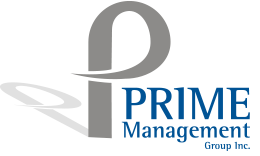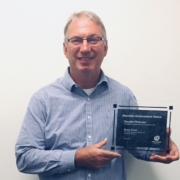Tips for Working With Recruiters
Tips For Working With Recruiters What should I expect from my third party recruiter who is working with our organization on a “contingency basis”? There is a fundamental difference in terms of “scope of work” when you consider engaging a recruiter on a “contingency” versus “retained” basis. If you have chosen to “retain” a recruiter, your expectations in terms of deliverables should be very high. You want them to have completed a thorough “vetting” process and bring only those excellent candidates forth who are worthy of making a “short list”. They will be, in fact, your right hand person throughout the entire recruitment process. On the other hand, if you are asking a recruiter to work with you on a “contingency” basis, they know that they have a much lower chance of actually closing the placement with you and making their fee. What that means is you will not have their “undivided” attention to your needs. What can you do to ensure you get more of their attention to your search than other searches they might be working on?
Here are a few pointers:
- Make it an exclusive agreement – you will not use other recruiters while they are engaged in this search for you. Of course, if they don’t come up with results in a reasonable amount of time, you should expect to be able to put this search out to other contingency recruiters. Make sure you are comfortable that your recruiter has the appropriate “reach” for the type of candidates you are looking for before committing to an exclusive arrangement. If they are part of a network, such as NPA Worldwide then you can have the confidence that they will have the resources to find excellent candidates for you.
- Pay a nominal “engagement fee”. This can really up the ante with respect to attention of your search assignment. In effect, you have given them a small portion of their overall potential fee so they are beholding to you (ahead of any other contingency search they may have on the books.) If you can’t pay an Engagement Fee then see if you can offer a “cancellation fee” in the event you need to cancel the search because you found someone better on your own. The value of having a recruiter on contingency means you have a chance to compare your candidate to those who are being submitted by the contingency recruiter.
- Get back to your recruiter with IMMEDIATE feedback once they have submitted candidates for your consideration. Even if you haven’t heard back from the hiring manager, at least get in touch with your recruiter and tell them that. Nothing is more discouraging for a recruiter than to have done all the work in getting resumes over to you, only to sit and wait for a response.
- Do all you can internally to move the recruitment process along at a good pace. In today’s market where extraordinary talent is in high demand, too many recruitment processes break down because of lack of feedback and movement down the hiring continuum. Candidates get mixed messages when they are confidentially considering your opening while still employed with another organization. It makes things very unsettling and they are more likely to pull themselves from the process.
- Pay your invoice on time! Don’t make the recruiter come after you only to find that you had it sitting on your desk and didn’t approve it and send it to payables. Once the work is completed to your satisfaction, the recruiter deserves to be paid on time. Often the bill is paid many months after the search process started ( in contingency work, the recruiter doesn’t get paid until their candidate is hired)
- Periodically, thank the recruiter – preferably in writing for a job well done. Nothing increases the relationship with a recruiter like a simple “thank you”.
- Offer to be a reference for their services to others.
- Refer a business colleague to them.





 Pexels.com
Pexels.com